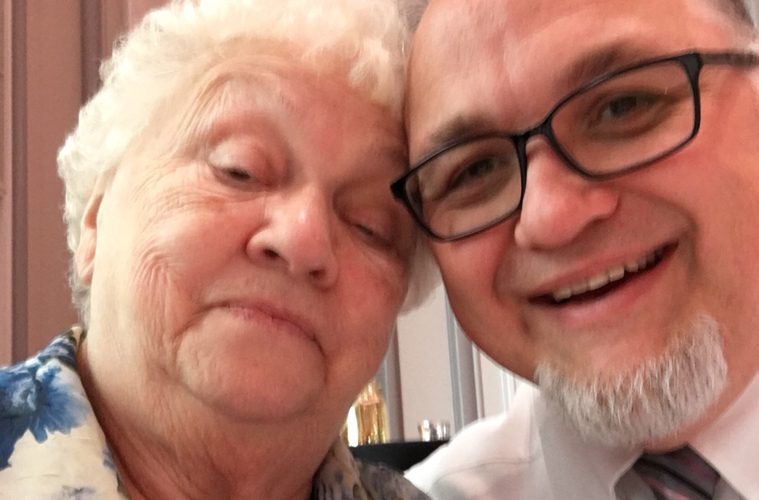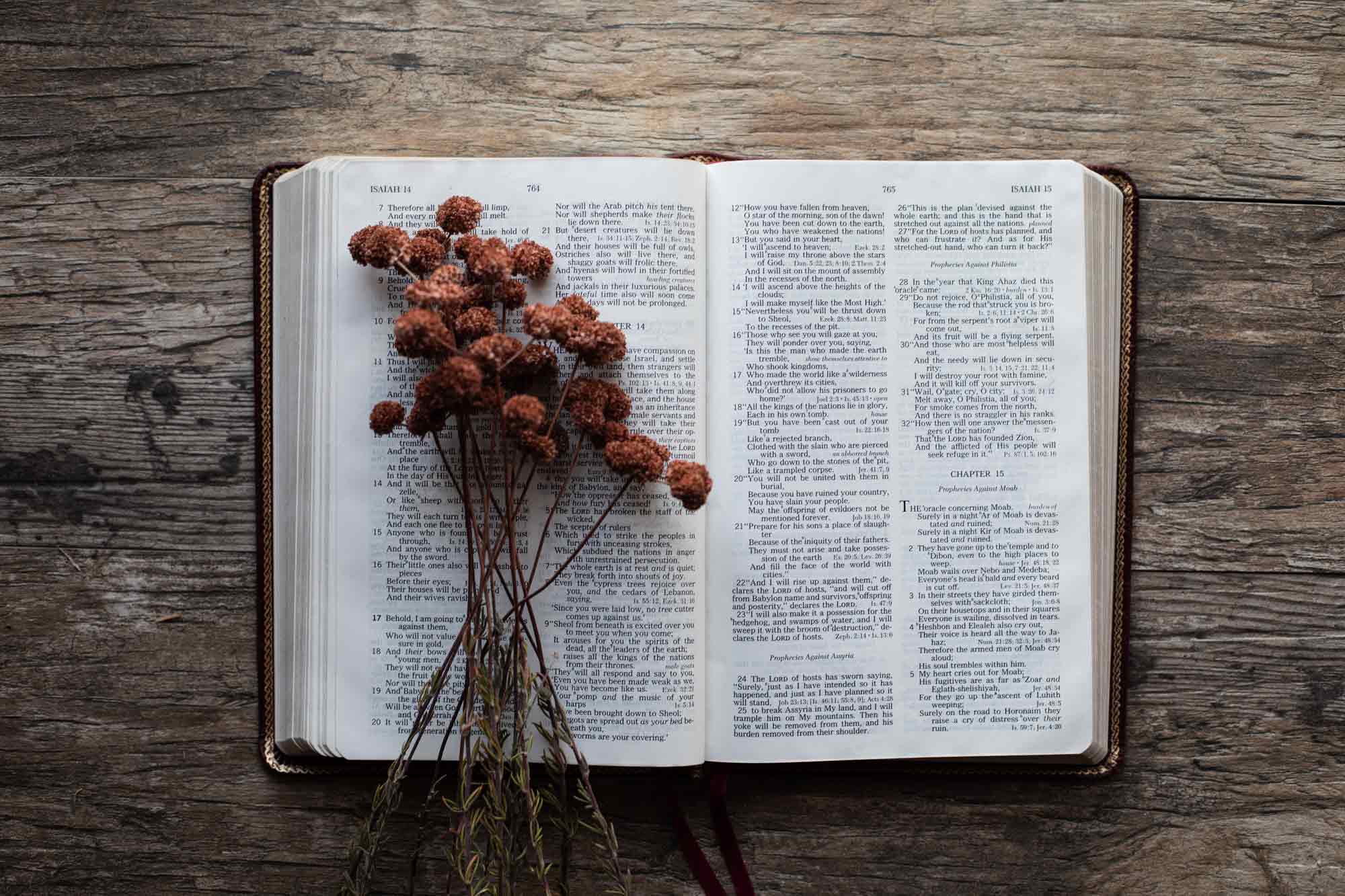Listen to this article
Listen to this article
Loading
Play
Pause
Options
0:00
-:--
1x
Playback Speed- 0.5
- 0.6
- 0.7
- 0.8
- 0.9
- 1
- 1.1
- 1.2
- 1.3
- 1.5
- 2
Audio Language
- English
- French
- German
- Italian
- Spanish
Open text
what ruth means to me. there is absolutely no chance of me writing a 750–1,500-word piece about my mother that would do her justice. in truth, an entire book or volume of books could not tell her whole, beautiful story. nor would it even begin to tell of her influence on my life. still, i’m all-in for any occasion to “rise up and call her blessed” (proverbs 31:28). so, in the following paragraphs i’d like to honor my mother, as i’ve attempted to do in many meager ways throughout my 51 years. ruth sharits was born march 10, 1936, in tacoma, washington. she was often called “ruthie mae” when she was young, but i’m not sure if she would like me to share that fact or not. (if she reads this and she’d rather i hadn’t shared it, i blame my sisters.). she was highly active in salvation army life, spending much of her growing up years involved in worship services, music programs, youth activities, camp, and so on. her mother was the best, but her homelife wasn’t. nevertheless, she met jesus and grew in her understanding of the father’s love for her. while still a teenager, the love of another walked into her life in the person of daniel birks. they were married, despite the false prophecy offered by someone: “i give them six months.” that person did not care enough to send the very best—not even close. for the record, they are still happily married 66 years later. ruth was ordained as an officer in the salvation army and served with dan for many years in several appointments. during that time, she had seven children, of which i am the youngest. while thinking about how best to honor my mom, i was also using the read scripture app and landed on the book of ruth. providence? coincidence? i’m not quite sure, but i went with it. if god is trying to get through to me, i’ll take a book of the bible over a burning/not burning bush or an angelic appearance any day. the book of judges ends with everyone doing what was right in his or her own eyes. the first verse of the next book, ruth, places her love story squarely in those turbulent times. a cursory reading of the narrative may leave the reader with a good feeling, like “well, at least there was one good thing that happened during that messy era.” for me, however, reading ruth for the whateverteenth time has been like mining for gold (or, in my case, flipping through vinyl record bins, searching for and finding buried treasure). what follows is a brief summary of my findings, as i compared ruth the moabite with ruth the tacoma-ite. loyalty and love. in the first chapter of ruth, her husband, father-in-law and brother-in-law died. naomi, ruth’s mother-in-law, does her best to get her daughters-in-law to return home and restart their young lives. she had nothing left to offer them. orpah took this advice, but ruth clung to naomi (1:14) and offered to her one of the most beautiful declarations of devotion in scripture; “where you go i will go, and where you stay i will stay. your people will be my people and your god my god. where you die i will die, and there i will be buried. may the lord deal with me, be it ever so severely, if even death separates you and me” (1:16-17). ruth the moabite was loyal to naomi and to her god. ruth the tacoma-ite is loyal to her god, her husband, his family, her kids, her friends, her ministry…she’s loyal. growing up, i never questioned my mom’s love for me. i always knew that i could count on her. that loyalty and love haven’t changed. well, i guess they have changed. they’ve strengthened and have strengthened me. work and witness. the second chapter of ruth is about other things, for sure, but there is no getting around the fact that naomi and ruth had nothing, so ruth went to work. my mom has been working her whole life and is still working, at age 83. she gives much of her time and talent to the salvation army adult rehabilitation center in sacramento, california. growing up, she worked full-time in the salvation war and full-time on the home front. i’m sure the work (in both workplaces) was often thankless. i’m sure she got tired. i’m sure she sacrificed rest for the rest of us. and, i am indebtedly grateful for her good work on my behalf. not only did i benefit at the time from her good work ethic and her good works, but her witness to me in this regard has stayed with me throughout the years. doing good work is a value i hold highly. i don’t yet have the full-time at home thing down. i need to work on that. (note: to be honest, there is no life lesson from chapter 3 of ruth which i learned from my mom. it is interesting reading, though, albeit a bit scandalous.). jesus and jesus. yes, when boaz from bethlehem redeems ruth the moabite and purchases naomi’s land in chapter 4, we get a glimpse of jesus redeeming all of us who are foreigners to his love. i couldn’t be more thankful for that picture of grace and for the grace that saved and saves me. but i want to highlight the fact that jesus came from ruth. near the end of the book of ruth we read of the birth of obed, the son of ruth and boaz. the book concludes with a genealogy of david, obed’s grandson. ruth isn’t mentioned in this family tree, but she does play prominently—along with four other women—in the gospel of matthew’s genealogy of jesus (1:1-16). ruth the moabite had a part in introducing the world to jesus. ruth the tacoma-ite introduced me to jesus. i have a memory of kneeling at the altar with her when i was six or seven and asking jesus to be my savior. memories often can’t be trusted and mine should be distrusted, so i can’t say for sure that the details of my conversion are 100 percent accurate here. what i do know to be true is that my mom showed jesus to me with her life and then helped me ask him into mine. my mom’s life has taught me many other hugely important things over the years—generosity, strength, humility, trust, patience, forgiveness, joy, parenting, ad infinitum. showing me jesus with her life and introducing me to him is something for which i will be forever grateful. we all deal with things in life which don’t make much sense—mini chocolate bars or mini tacos, for instance. the fact that the name ruth means “friend,” however, makes perfect sense. ruth the moabite showed it to naomi. ruth the tacoma-ite showed and continues to show it to me. and finally, i’m sorry if there isn’t a book of the bible with your mom’s name on it. look on the bright side this mother’s day. at least your mom’s name isn’t habakkuk. (it’s not, right?).
Open context player
Close context player
Plays:-Audio plays count
what ruth means to me. there is absolutely no chance of me writing a 750–1,500-word piece about my mother that would do her justice. in truth, an entire book or volume of books could not tell her whole, beautiful story. nor would it even begin to tell of her influence on my life. still, i’m all-in for any occasion to “rise up and call her blessed” (proverbs 31:28). so, in the following paragraphs i’d like to honor my mother, as i’ve attempted to do in many meager ways throughout my 51 years. ruth sharits was born march 10, 1936, in tacoma, washington. she was often called “ruthie mae” when she was young, but i’m not sure if she would like me to share that fact or not. (if she reads this and she’d rather i hadn’t shared it, i blame my sisters.). she was highly active in salvation army life, spending much of her growing up years involved in worship services, music programs, youth activities, camp, and so on. her mother was the best, but her homelife wasn’t. nevertheless, she met jesus and grew in her understanding of the father’s love for her. while still a teenager, the love of another walked into her life in the person of daniel birks. they were married, despite the false prophecy offered by someone: “i give them six months.” that person did not care enough to send the very best—not even close. for the record, they are still happily married 66 years later. ruth was ordained as an officer in the salvation army and served with dan for many years in several appointments. during that time, she had seven children, of which i am the youngest. while thinking about how best to honor my mom, i was also using the read scripture app and landed on the book of ruth. providence? coincidence? i’m not quite sure, but i went with it. if god is trying to get through to me, i’ll take a book of the bible over a burning/not burning bush or an angelic appearance any day. the book of judges ends with everyone doing what was right in his or her own eyes. the first verse of the next book, ruth, places her love story squarely in those turbulent times. a cursory reading of the narrative may leave the reader with a good feeling, like “well, at least there was one good thing that happened during that messy era.” for me, however, reading ruth for the whateverteenth time has been like mining for gold (or, in my case, flipping through vinyl record bins, searching for and finding buried treasure). what follows is a brief summary of my findings, as i compared ruth the moabite with ruth the tacoma-ite. loyalty and love. in the first chapter of ruth, her husband, father-in-law and brother-in-law died. naomi, ruth’s mother-in-law, does her best to get her daughters-in-law to return home and restart their young lives. she had nothing left to offer them. orpah took this advice, but ruth clung to naomi (1:14) and offered to her one of the most beautiful declarations of devotion in scripture; “where you go i will go, and where you stay i will stay. your people will be my people and your god my god. where you die i will die, and there i will be buried. may the lord deal with me, be it ever so severely, if even death separates you and me” (1:16-17). ruth the moabite was loyal to naomi and to her god. ruth the tacoma-ite is loyal to her god, her husband, his family, her kids, her friends, her ministry…she’s loyal. growing up, i never questioned my mom’s love for me. i always knew that i could count on her. that loyalty and love haven’t changed. well, i guess they have changed. they’ve strengthened and have strengthened me. work and witness. the second chapter of ruth is about other things, for sure, but there is no getting around the fact that naomi and ruth had nothing, so ruth went to work. my mom has been working her whole life and is still working, at age 83. she gives much of her time and talent to the salvation army adult rehabilitation center in sacramento, california. growing up, she worked full-time in the salvation war and full-time on the home front. i’m sure the work (in both workplaces) was often thankless. i’m sure she got tired. i’m sure she sacrificed rest for the rest of us. and, i am indebtedly grateful for her good work on my behalf. not only did i benefit at the time from her good work ethic and her good works, but her witness to me in this regard has stayed with me throughout the years. doing good work is a value i hold highly. i don’t yet have the full-time at home thing down. i need to work on that. (note: to be honest, there is no life lesson from chapter 3 of ruth which i learned from my mom. it is interesting reading, though, albeit a bit scandalous.). jesus and jesus. yes, when boaz from bethlehem redeems ruth the moabite and purchases naomi’s land in chapter 4, we get a glimpse of jesus redeeming all of us who are foreigners to his love. i couldn’t be more thankful for that picture of grace and for the grace that saved and saves me. but i want to highlight the fact that jesus came from ruth. near the end of the book of ruth we read of the birth of obed, the son of ruth and boaz. the book concludes with a genealogy of david, obed’s grandson. ruth isn’t mentioned in this family tree, but she does play prominently—along with four other women—in the gospel of matthew’s genealogy of jesus (1:1-16). ruth the moabite had a part in introducing the world to jesus. ruth the tacoma-ite introduced me to jesus. i have a memory of kneeling at the altar with her when i was six or seven and asking jesus to be my savior. memories often can’t be trusted and mine should be distrusted, so i can’t say for sure that the details of my conversion are 100 percent accurate here. what i do know to be true is that my mom showed jesus to me with her life and then helped me ask him into mine. my mom’s life has taught me many other hugely important things over the years—generosity, strength, humility, trust, patience, forgiveness, joy, parenting, ad infinitum. showing me jesus with her life and introducing me to him is something for which i will be forever grateful. we all deal with things in life which don’t make much sense—mini chocolate bars or mini tacos, for instance. the fact that the name ruth means “friend,” however, makes perfect sense. ruth the moabite showed it to naomi. ruth the tacoma-ite showed and continues to show it to me. and finally, i’m sorry if there isn’t a book of the bible with your mom’s name on it. look on the bright side this mother’s day. at least your mom’s name isn’t habakkuk. (it’s not, right?).
Listen to this article

















